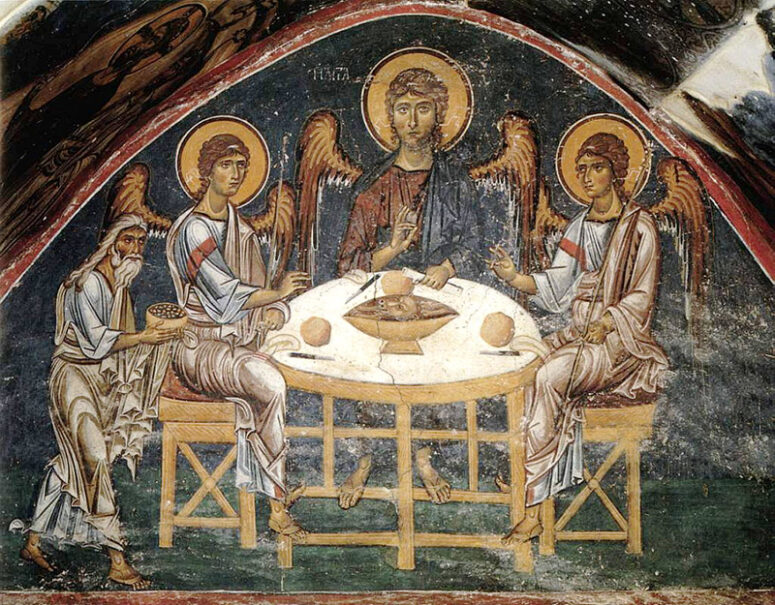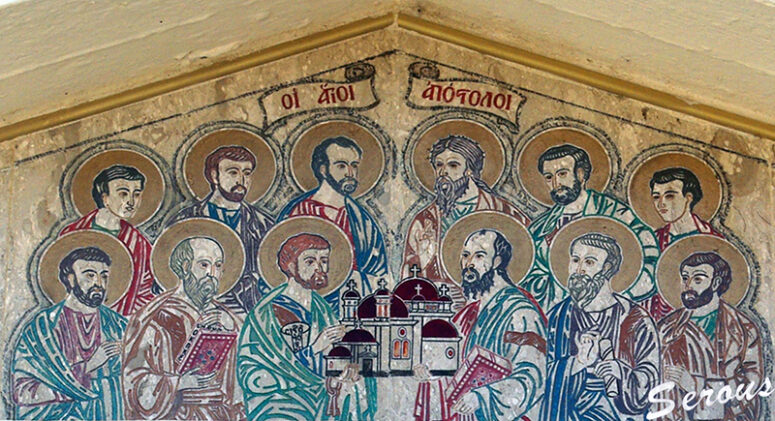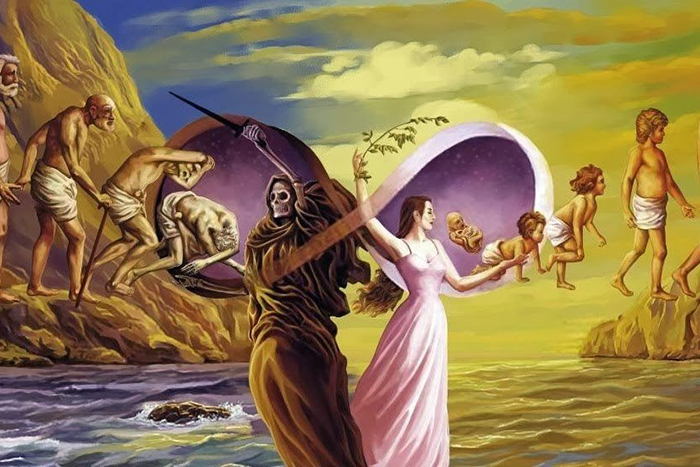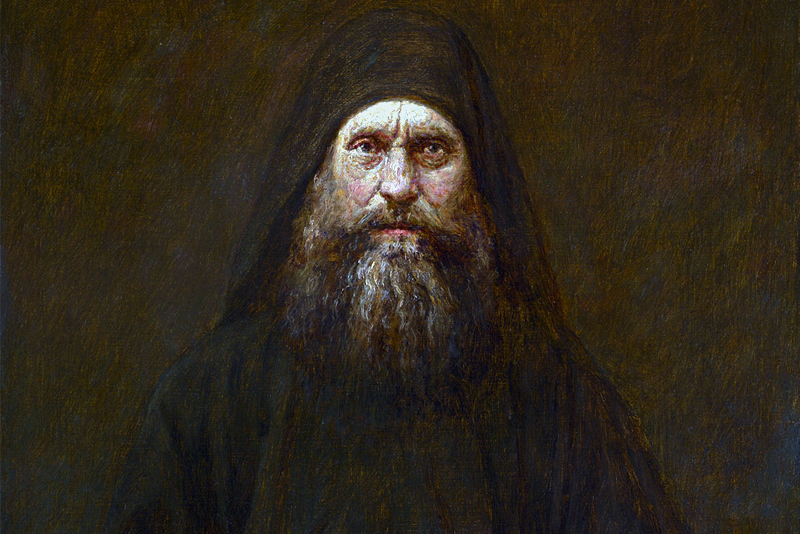
The Books of Wisdom of Solomon presents the following account of the mystery of God’s creation: “Thou hast arranged all things by measure and number and weight (Book of Wisdom 11:21). “There is a number without a measure which lies at the core of all creation”, writes Augustin Aurelius in his commentaries on the Old Testament, referring to the Divine Wisdom. Many great thinkers and theologians have looked into the sacred meanings of the numbers from the Scriptures in the understanding there is nothing coincidental with God. Let us review some of the most prominent and frequent numbers occurring in biblical texts.
One
Just as all mathematics starts with this number, all creation begins from one God. When this number occurs in the biblical text, it most often refers to the one and only God. “but you must not eat from the tree of the knowledge of good and evil” (Genesis 2:17). For you have one Father, and he is in heaven. Nor are you to be called instructors, for you have one Instructor, the Messiah. “There shall be one flock and one shepherd.” (John 10:16).
Two
In Christianity, the number ‘two’ refers to the two natures of Christ – divine and human. This number also invokes fundamental and self-sufficient truths, such as two tablets of the Testament, or the Apostles who were sent out by two 6:7), so both of them would witness to the truth, or two prophets making an appearance in the last days (Revelation 11).
Three

This number reminds us of the Holy Triunity. It is associated with divinity, devotion to God, or with apostasy. In the Bible, three angels appeared to Abraham (Genesis 18). The call “Holy, Holy, Holy is the Lord Almighty” was exchanged three times, as we read in the book of Isaiah 6:3). Matthew (28:19) spoke of the baptism in the name of the Father, Son and the Holy Spirit. Finally, in the Book of Luke (13:7) we read: “For three years now I’ve been coming to look for fruit on this fig tree and haven’t found any [fruit]. Cut it down! Why should it use up the soil?”
Four
With this number, we associate the notions of permanence and ever-presence. There are four cardinal directions – North, South, East and West. We read about four rivers that watered the Garden of Eden, four angles of an altar, and four evangelists. For example, the Book of Revelation (20:7) speaks about “the nations in the four corners of the earth’.
Six
This number is related to creation and formation. For example, it took God six days to create the world. He had commanded us to work six days a week.
The figure ‘six’ is a part of the number of the Antichrist, 666, mentioned for the first time in the third Book of Kings: “And the weight of the gold that was brought to Solomon every year, was six hundred and sixty-six talents of gold” (3 Kings 10:14). Here the number six – a symbol of the fulness of creation – might mean that Solomon possessed every earthly thing that he desired. In his Revelation, John the Theologist used the same image to refer to the power of the anti-Christ on earth: “Let the person who has insight calculate the number of the beast, for it is the number of a man. That number is 666.” (Revelation 13:18).
Seven
Seven is the most common way to allude to fulness and all-roundedness. God blessed and sanctified the seventh day when he rested from his work.
Here are some references to the number in the Old Testament: “Anyone who kills Cain will suffer vengeance seven times over.” (Genesis 4:15), Noah brought into the arch seven pairs of every ‘clean’ animal. In the New Testament, we read about seven loaves of bread distributed among four thousand people. Also, Jesus drove seven demons out of Mary Magdalen. He commanded Peter that he forgive his brother or sister who sins against him “not seven times, but seventy-seven times” (Matthew 18:22). The number seven is mentioned multiple times across the book of revelation, which speaks of seven stars in the right hand of the Son of Man, and of seven trumpets sounded one after another, a beast with seven heads, seven cups of wrath, and a message to seven churches.
There are seven sacraments in the Orthodox Church.
It is in a similar context that we encounter in the Bible the number seventy. Jacob had 70 descendants (Exodus 1:5), Prophet Moses selected 70 elders, and in Babylon, the Israelites spend 70 years in captivity. In the New Testament, we read about Jesus’ 70 Apostles whom He selected in addition to his twelve disciples; it also mentions the selection by the Apostles of seven deacons (Acts 6:3).
Ten
Ten symbolises sufficiency, and completeness, to an extent. The Bible mentions ten plagues of Egypt (Exodus 2 – 17), ten righteous men for whom God was willing to spare the world, a tenth of the crop to be sacrificed to God, and ten virgins with lanterns (Matthew 25:1 – 12).
Twelve

Twelve is the number of God-chosen disciples. Also, we read about Jacob’s twelve sons, from which the twelve Israeli tribes had descended. Jesus chose twelve apostles to sit on twelve thrones in the Kingdom of Heaven and judge twelve tribes of Israel (Matthew 19:28). Also, in the biblical account of the Apocalypse, we find references to 12,000 people chosen from every tribe (Revelation 7:4-8), 24 elders (two sets of twelve) и 12 stars on the head of the woman clothed with the sun.
Forty
In the Bible, forty is an allusion to some preliminary event culminating in some great trial or a test of the faith. The great flood lasted 40 days before the earth became cleansed. Moses spent forty days and nights on Mount Sinai and returned to his people with the ten commandments. God led the Jews around the desert for forty years until the generation changed before He let them enter into the Promised Land. Kings David and Solomon reigned for forty years. The inhabitants of Nineveh had forty days to repent (Jonah 3:4). Before He began to preach the Kingdom of God, Christ spent forty days fasting in the desert, resisting temptations from the devil. After His resurrection, God remained on earth for 40 days before ascending to heaven.
The above interpretations may be considered proof that the numbers in the Bible have meanings. In general, the fathers of the Church advise us against treating them as riddles and that we might try to make sense of them with our minds. However, as we let God’s word in our hearts, we should not stop seeking out the biblical meanings that the numbers might help us understand towards our salvation.
Sources:
https://azbyka.ru/numerologiya-biblejskaya
http://gorlovka-eparhia.com.ua/sakralnye-chisla-v-biblii/





40 is de duur van een zwangerschap.
40 staat dus voor: nieuw leven = nieuw begin
De tijd tussen Jezus’ sterven en zijn opstanding is dus ook niet toevallig 40 uur!
Arie Hoogendoorn
Thank you for the addition!